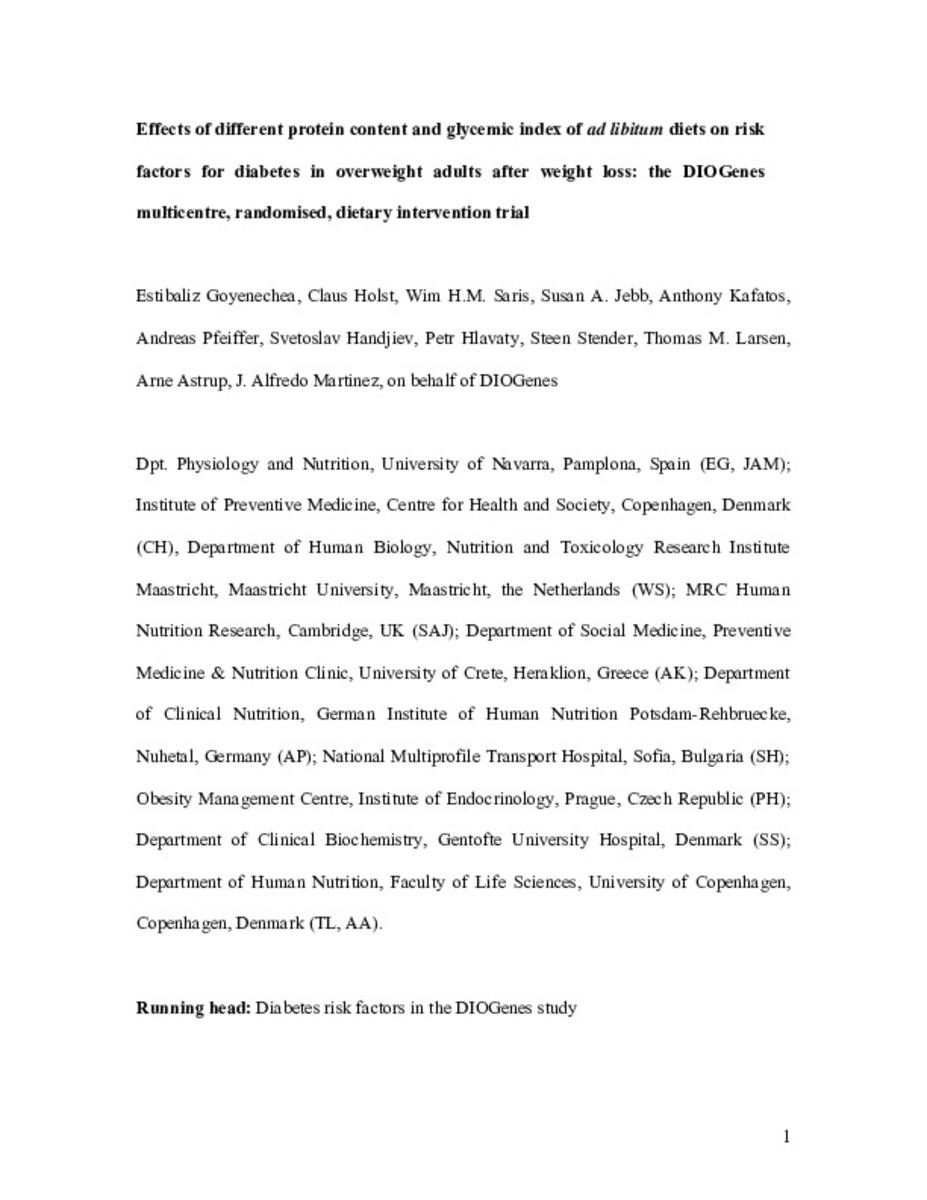Effects of different protein content and glycemic index of ad libitum diets on diabetes risk factors in overweight adults: the DIOGenes multicentre, randomised, dietary intervention trial.
Keywords:
Obesity
Diabetes
Insulin resistance
High-protein diets
Low-glycemic index diets
Energy restriction
Weight loss
Publisher:
Wiley Blackwell
Citation:
Goyenechea E, Holst C, Saris WH, Jebb S, Kafatos A, Pfeiffer A, et al. Effects of different protein content and glycemic index of ad libitum diets on diabetes risk factors in overweight adults: the DIOGenes multicentre, randomised, dietary intervention trial. Diabetes Metab Res Rev 2011 May 17.
Statistics and impact
0 citas en

Items in Dadun are protected by copyright, with all rights reserved, unless otherwise indicated.







